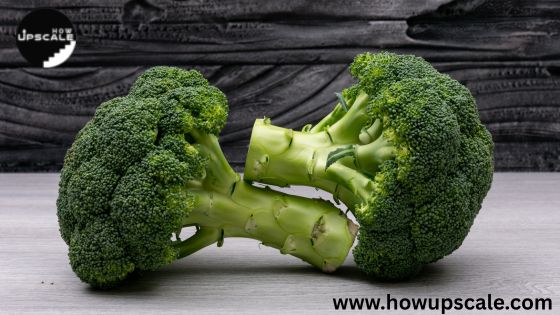Mushroom Benefits: Nutrition Facts and Health Benefits and More

Mushrooms are one of the most versatile and healthiest foods available. They are low in calories, rich in nutrients, and packed with antioxidants. From boosting your immunity to supporting heart health, the Mushroom Benefits are truly impressive.
We’ll explore all the Mushroom Benefits, along with key insights into Mushroom Nutrition, Mushroom Protein, and Mushroom Calories. Whether you’re a fitness enthusiast or just someone looking to eat healthier.
What Are Mushrooms?
Mushrooms are a type of fungi that have been consumed for thousands of years. They are neither a plant nor an animal but hold a unique spot in the food kingdom. Mushrooms come in many varieties such as white button, portobello, shiitake, oyster, and cremini.
Although small in size, mushrooms offer massive health benefits.
Mushroom Nutrition Facts
Before diving into the Mushroom Benefits, it’s important to understand their nutritional value. Mushrooms are packed with:
- B vitamins (B2, B3, B5)
- Vitamin D (when exposed to sunlight)
- Selenium
- Copper
- Potassium
- Phosphorus
- Fiber
They are naturally low in fat, cholesterol, and sodium, making them ideal for any diet.
A cup of raw mushrooms (about 70 grams) typically contains:
Mushroom Calories: Only about 15–20
Protein: Around 2 grams (Mushroom Protein)
Carbohydrates: 2–3 grams
Fiber: 1 gram
Clearly, Mushroom Nutrition is dense in vitamins and minerals without adding much to your daily calorie intake.
1. Boosts Immunity
One of the most well-known Mushroom Benefits is its ability to strengthen the immune system. Mushrooms contain beta-glucans, which are compounds known to enhance the activity of white blood cells. These cells are essential in fighting infections and preventing illnesses.
Shiitake and maitake mushrooms are especially good for immunity.
2. Supports Heart Health
Mushrooms are rich in potassium and fiber, both of which support cardiovascular health. Potassium helps to regulate blood pressure, while fiber reduces cholesterol levels. They also contain antioxidants that prevent oxidative stress, a known contributor to heart disease.
Adding mushrooms to your meals can be a tasty way to support a healthy heart.
3. Helps with Weight Management
Because of the low Mushroom Calories, they are ideal for weight watchers. You can eat a lot of them without worrying about calorie overload. They are also rich in fiber and water content, which helps you feel full for longer.
Replacing high-calorie ingredients with mushrooms in recipes is a smart way to reduce calorie intake without sacrificing taste.
4. Rich in Antioxidants
Another reason why Mushroom Benefits are praised is their antioxidant power. Mushrooms contain selenium, glutathione, and ergothioneine—all of which help to fight free radicals in the body.
This not only supports long-term health but also may slow down aging and reduce the risk of chronic diseases like cancer.
5. Improves Brain Function
Some mushroom types like lion’s mane are known to boost brain function. Research suggests they may support cognitive health, improve memory, and even reduce symptoms of anxiety and depression.
This makes mushrooms an excellent food for your mental well-being.
6. Plant-Based Protein Source
Vegetarians and vegans often look for non-meat sources of protein. Mushrooms can help fill that gap. While not as protein-rich as beans or lentils, they still offer a good amount of Mushroom Protein.
For example, portobello mushrooms are often used as a meat substitute in burgers because of their texture and protein content.
7. Supports Gut Health
The fiber in mushrooms acts as a prebiotic, which feeds the good bacteria in your gut. A healthy gut is key to digestion, nutrient absorption, and even mental health.
Adding mushrooms to your diet regularly can help maintain a healthy and balanced gut microbiome.
8. Bone Strengthening Properties
Mushrooms exposed to sunlight are a natural source of vitamin D. This vitamin helps the body absorb calcium, which is essential for strong bones. As we age, bone density becomes a concern, and eating vitamin D-rich mushrooms can help maintain bone health.
Another reason why Mushroom Benefits are important for long-term health!
9. Regulates Blood Sugar Levels
Mushrooms have a low glycemic index and can help in managing blood sugar levels. This makes them especially beneficial for people with diabetes or those looking to maintain stable energy throughout the day.
The fiber and antioxidants in mushrooms slow down the absorption of sugar in the bloodstream.
10. Cancer-Fighting Properties
Some research indicates that mushrooms may have cancer-fighting abilities. The antioxidants in mushrooms help protect cells from damage that could lead to cancer. They also boost the immune system, which plays a key role in detecting and destroying cancer cells.
While more studies are needed, the initial findings are promising.
How to Include Mushrooms in Your Diet
There are many ways to add mushrooms to your meals:
- Sautéed as a side dish
- Grilled in sandwiches or burgers
- Added to soups and stews
- Used as toppings on pizzas or salads
- Mixed into omelets or pasta
You can enjoy all the Mushroom Benefits by adding just a handful to your daily meals.
Best Types of Mushrooms for Health
While all mushrooms are healthy, some stand out:
Shiitake – Great for immunity
Portobello – High in Mushroom Protein
Lion Mane – Brain booster
Maitake – Blood sugar and immune support
Oyster Mushrooms – Rich in fiber
Try to include a variety of mushrooms in your meals to maximize Mushroom Benefits.
Nutrient Comparison: Mushrooms vs Other Vegetables
When comparing Mushroom Nutrition to other popular vegetables, mushrooms hold their own with unique health advantages. Let’s break it down simply:
Mushrooms vs Spinach
Calories: Mushrooms have fewer Mushroom Calories (around 20 per cup) compared to spinach, which has about 23 calories per cup.
Protein: Mushrooms offer around 2 grams of Mushroom Protein, while spinach has slightly more at 2.9 grams.
Fiber: Spinach is richer in fiber, but mushrooms still contribute to daily intake.
Vitamins: Both are high in B vitamins, but mushrooms uniquely contain vitamin D when exposed to sunlight.
Mushrooms vs Broccoli
Calories: Mushrooms are lower in calories (approx. 20), while broccoli contains about 31 per cup.
Protein: Mushrooms offer solid plant-based Mushroom Protein at 2 grams, while broccoli provides around 2.5 grams.
Fiber: Broccoli has more fiber, but mushrooms are still beneficial for digestion.
Minerals: Mushrooms provide selenium and copper, which are not as abundant in broccoli.
What Makes Mushrooms Unique?
While spinach and broccoli are high in fiber and vitamins, mushrooms offer:
- Vitamin D (rare in plants)
- Powerful antioxidants like ergothioneine
- Low Mushroom Calories with satisfying flavor and texture
- Trace minerals like selenium and potassium
So, while all these vegetables are healthy, the unique Mushroom Benefits give mushrooms a special place in a balanced diet.
While not as high in fiber as other vegetables, mushrooms still provide unique nutrients like selenium and vitamin D.
Mushrooms for Special Diets
Keto-Friendly: Very low in carbs
Vegan-Friendly: Great for Mushroom Protein
Gluten-Free: Naturally gluten-free
Low-Calorie Diets: Few Mushroom Calories
Whatever diet you follow, mushrooms are a suitable and healthy addition.
About Mushrooms Benefits
1. Are mushrooms safe to eat daily?
Yes. Edible mushrooms like white button, cremini, and shiitake are safe to eat every day. Just make sure they are properly cleaned and cooked.
2. Can mushrooms help with weight loss?
Absolutely! Their low Mushroom Calories and high fiber content help you stay full while consuming fewer calories.
3. Are mushrooms a good source of protein?
While they aren’t protein powerhouses, they are one of the best plant-based foods with Mushroom Protein especially for vegetarians.
4. Do mushrooms contain vitamins?
Yes, they’re rich in B vitamins, vitamin D, and several essential minerals, making Mushroom Nutrition highly valuable.
5. Is it better to eat mushrooms raw or cooked?
Cooking mushrooms enhances their flavor and makes some nutrients more bioavailable. It also removes certain compounds that can be hard to digest when raw.
Mushrooms are much more than just a pizza topping or side dish. Their nutritional value, health-boosting properties, and ability to fit into almost any diet make them a must-have in your kitchen.
From Mushroom Nutrition to Mushroom Protein and even their low Mushroom Calories, there are countless reasons to love mushrooms. Whether you’re looking to boost your immune system, manage your weight, or simply eat cleaner, taking advantage of all the Mushroom Benefits is a smart move for your health.










